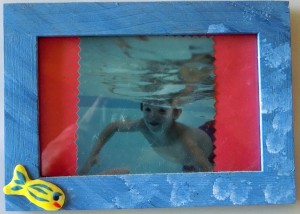The first day of swimming lessons always has at least one little kid holding onto his mom’s leg and sobbing, “But mommy… I can’t get in the water with the teacher. I don’t know how to swimmmm!”
A lot of people approach firearms training just like that poor little guy approaches his swim lessons. They don’t want to come to class because they think they should already know the things the class is designed to teach. But the truth is, you come to class to learn something new, not to show off what you already know. If you don’t already know everything – okay, maybe not anything – that’s going to be covered in the class, that’s a good thing. It means you’re in the right place.
Many people are fine with this idea when it comes to taking their first and most basic class. It’s okay to take that first class without feeling a lot of confidence in their skills, they figure, because everyone else in the beginners’ class will be beginners, too. So they won’t feel out of place and they’ll do just fine. But … that’s where they stop. They’re afraid to sign up for the next class after that, because they still feel like beginners. They’re afraid to keep swimming.
Same problem, really. Only it’s slightly more complicated, because as you move through the training cycle you begin to realize that one needy student really can make a slow day for the other students who might prefer to move faster through the material. Good instructors are used to dealing with a variety of skill levels in their students, but there’s always the need to keep people moving at a good pace for everyone in the group. Having someone there who’s far behind the curve can be tough for all involved. So it’s not surprising that some folks feel awkward or fearful when they realize they don’t already know how to swim at the level the next class will be teaching.
It doesn’t have to be that way.
First of all, the thing we instinctively know about the beginners’ class – that you get in the water with the teacher to learn how to swim, and that you don’t come to class already knowing that skill – that’s still true in the next class up. And in the one after that. The truth is, learning something new often feels like you’re out of your depth at first. And that’s okay. It’s how we learn.
More to the point? If you really, truly feel like the next class up will be “too advanced” for you, like you won’t be able to keep up with the other students in it, that doesn’t mean you have to stop learning entirely. It simply means you’ll need to set some goals, practice diligently, and maybe you’ll need to take that first class again to reinforce what you’ve already learned before you move up. This is not a failure! It’s very much the expected and normal course of events for people who are serious about self defense. In fact, once you start looking for them, you’ll often find very advanced students and even instructors taking classes from other trainers at the basic level. We do it because we know that reinforcing the foundation makes the whole building stronger.
This isn’t theoretical. There’s a Defensive Handgun class intended for beginning to intermediate students at my local school (the Firearms Academy of Seattle) that I’ve taken more than a dozen times. Took it twice as a new shooter before I enrolled in the next class up, and took it again many times after that as I was becoming an instructor. Every time, I learned something new or reinforced good habits I wanted to build.
So if you’ve taken one class, felt it was beneficial but don’t feel ready to advance yet, don’t despair. Keep practicing the things you learned in that first class, and set a deadline by which you will take another class. If you feel ready by that date, take the next class up. If you don’t, take the basic one over again as a refresher.
Just keep swimming.








This is so true. I’ve taken Double Tap’s Tactical Rifle I twice and each time I walk away having learned something knew and more confident. There’s another class coming up in a couple of weeks and I’m considering taking it a third time. The beauty with the place I take my classes is that you only pay for the class once – you can then “audit” the class as many times as you’d like, which makes it easier on the budget to take it again as a refresher.
There’s a new training place opening up nearby. I don’t know anything about the instructor or his/her philosophy, but I might take a beginning class from them as a lefty. It’s been a while since I’ve shot left-handed, so a full class should help me be more comfortable.